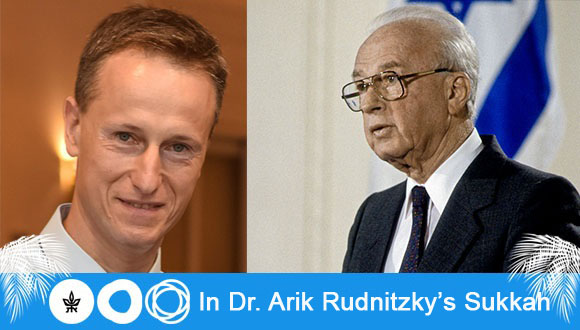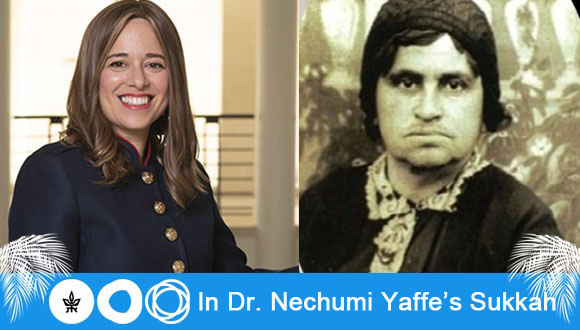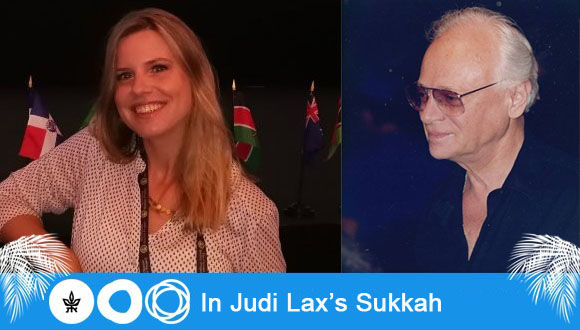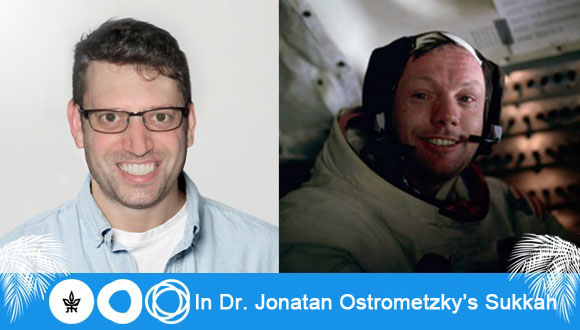
Be My Guest
What famous personalities would TAU researchers invite to their sukkah?
Welcoming guests is a prominent part of celebrating the week-long Jewish holiday of Sukkot. Family, friends, and neighbors are often invited into the sukkah (a hut which evokes the temporary dwellings the Israelites inhabited on their way out of Egypt) to share food and drink and to spend time together. We asked four TAU researchers who they would have invited, if they could pick one person, from past or present time, to visit their sukkah. Why him or her? What question would they have asked? What would they have said?
Dr. Arik Rudnitzky would have invited Former Prime Minister of Israel, Yitzhak Rabin
Dr. Rudnitzky is Project Manager of Tel Aviv University’s Konrad Adenauer Program for Jewish-Arab Cooperation, at The Moshe Dayan Center for Middle Eastern and African Studies.
“I would have invited Yitzhak Rabin. To me, he was a father figure in the broad and collective sense of the word. A model of the “Sabra”, a hero, and a humble one at that. When he died, I felt as though I’d lost an elderly family member. Besides, Rabin would visit soldiers and people and would behave just like regular people. He’d speak with me as equals and not like a politician.”
“I’d ask him how different today’s Israeli is from his vision. I’d love to hear the assessment of today’s reality from a person who made history. I’d also throw in a random question, like ‘How are you?’, just to listen to the way he speaks again. The way he spoke was direct and personal.”

Dr. Nechumi Yaffe would have invited Sarah Schenirer, a Polish-Jewish schoolteacher who became a pioneer of Jewish education for girls
Dr. Yaffe is Faculty Member of the School of Social and Policy Studies and Researcher focusing on the Ultra-Orthodox at the Israel Democracy Institute.
“I would’ve loved to host the late Sarah Schenirer. She was the founder of the Beit Yaakov network, a girls’ school in Poland that expanded to include the network of ultra-Orthodox girls’ schools around the world. She was a rare and very brave social entrepreneur. She thought differently from everyone around her, fought the establishment and initiated a very pioneering movement. This was long before ‘feminism’ became a recognized term. She first established sacred studies for girls and combined them with high-level secular studies in the Beit Yaakov network.”
“I’d ask her where she got the courage from, and why she did not complete her mission by forcing the rabbis to introduce secular studies in the boys’ yeshivas. The world could have been more complete and enriched.”

Judi Lax would have invited Ephraim Kishon, a Hungarian-born Israeli author, dramatist, screenwriter, and Oscar-nominated film director. He was one of the most widely read contemporary satirists in the world
Ms. Lax is a doctoral student in The Department of Environmental Studies
“I would’ve loved the chance to sit down with the late Ephraim Kishon in my sukkah. Apart from the fact that we’re both Hungarians, already as a child I enjoyed his brilliant and sarcastic sense of humor. I’d have asked him how he feels about everything that’s happening around us –the epidemic; how so many people had to take unpaid vacations and some have chosen not to return to work; about prisoners who escape from prison, only to discover that the conditions on the outside are worse – all these peculiar things that are going on lately. I am sure that he would have shared an amusing point of view, one that he’d articulate in a fluent language no longer heard.”

Dr. Jonatan Ostrometzky would have invited Neil Armstrong, American astronaut and aeronautical engineer, and the first person to walk on the Moon
Dr. Ostrometzky is Faculty Member of Digital Sciences for High-Tech, of The Iby and Aladar Fleischman Faculty of Engineering.
“I’d invite Neil Armstrong, the commander of the famous Apollo 11 mission in which humans first landed on the moon in the summer of 1969. Landing on the moon symbolizes the almost infinite abilities that can be achieved by a combination of motivation, desire and perseverance – with scientific research and technological development. I’d ask him how he arrived at his famous sentence “That’s one small step for [a] man, one giant leap for mankind.”

